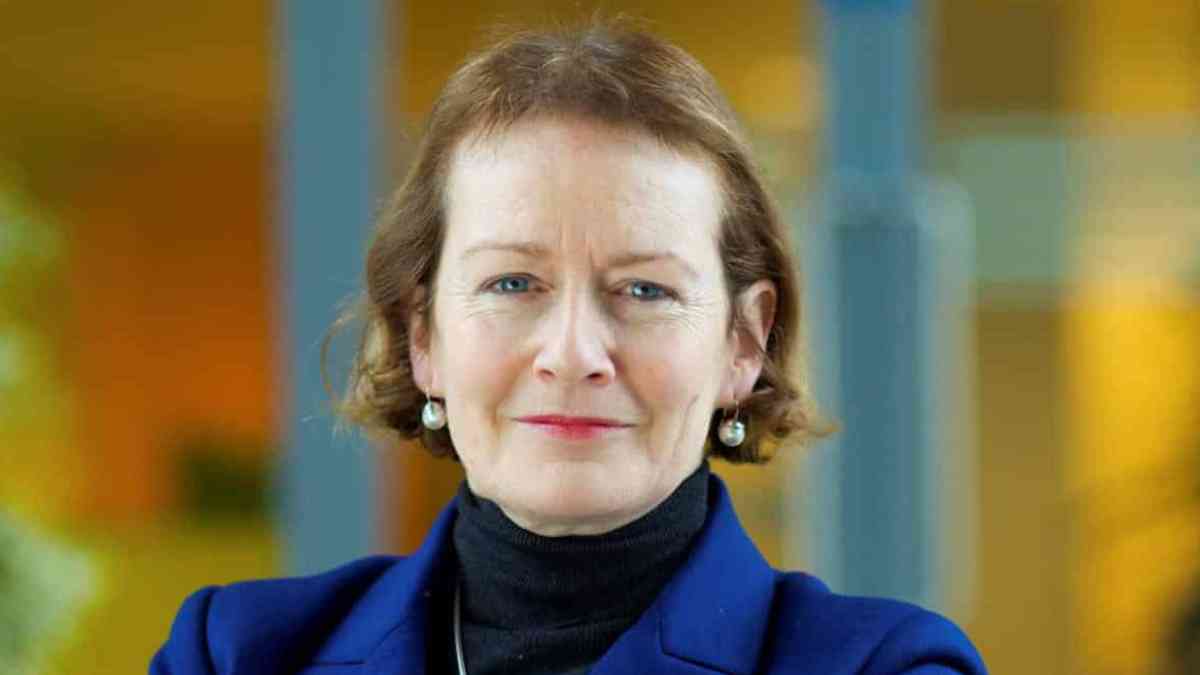Helen Ghosh: A Trailblazing Force in British Public Life

Helen Frances Ghosh, widely known as Dame Helen Ghosh, stands as a towering figure in modern British public service and heritage leadership. Born in 1956, she grew up in Farnborough, Hampshire, in a household grounded in public duty. Her father was an aeronautical engineer and civil servant, and her mother a librarian, both of whom nurtured a strong intellectual ethos and sense of civic responsibility. These early influences would later shape her lifelong commitment to public service and policy reform.
Helen Ghosh pursued her undergraduate studies at St Hugh’s College, Oxford, where she read Modern History. Her academic brilliance led her to undertake postgraduate research at Hertford College, Oxford, specialising in sixth-century Italy. Her focus on ancient culture was perhaps a fitting precursor to her later career in environmental conservation and historical preservation.
Entering the Civil Service: Early Career and Rapid Rise
In 1979, Helen Ghosh entered the British Civil Service through the fast-stream graduate programme, an elite route reserved for the most capable candidates. Her early roles were in the Department of the Environment, where she quickly became known for her analytical acumen, strategic thinking, and empathetic leadership.
Her career over the next two decades was marked by a diverse range of posts across departments including the Cabinet Office, Inland Revenue, and the Department for Work and Pensions. She managed policy initiatives in areas such as local government finance, regeneration, child poverty, and taxation. This multi-disciplinary exposure would prove instrumental in her later success.
Breaking Barriers: Permanent Secretary Roles
Helen Ghosh reached the pinnacle of the Civil Service when she was appointed Permanent Secretary at the Department for Environment, Food and Rural Affairs (DEFRA) in 2005. This was a watershed moment, as she became one of the first women to hold such a senior post in the UK government.
Her tenure at DEFRA was marked by pivotal environmental challenges, including the outbreak of avian flu and climate change policy formulation. She became known not only for her crisis management abilities but also for advocating science-based policymaking and long-term strategic planning.
In 2011, Dame Helen Ghosh was appointed Permanent Secretary at the Home Office. Here, she broke a 250-year-old glass ceiling as the first woman to lead the department. Her leadership coincided with a turbulent period, including the London riots, preparations for the 2012 Olympics, and sensitive immigration reforms. Despite these challenges, she steered the department with a focus on transparency, accountability, and operational effectiveness.
Transition to the Third Sector: Director-General of the National Trust
In 2012, Dame Helen Ghosh took a bold and unexpected step—she left the Civil Service to become the Director-General of the National Trust, one of Britain’s most beloved heritage organisations. Many viewed this move as unconventional, but it epitomised her ability to transcend traditional career boundaries.
At the helm of the National Trust, she faced a daunting task: modernising an institution deeply rooted in tradition. Under her leadership, the Trust adopted a more inclusive and forward-looking stance. Membership numbers rose, and so did engagement with younger and more diverse audiences.
Her flagship programme, “Playing Our Part,” laid out a 10-year vision that prioritised conservation, climate resilience, and cultural accessibility. The initiative led to increased investments in heritage preservation and bolstered the Trust’s advocacy on environmental issues. Her efforts helped transform the organisation from a custodian of the past into an influential voice for the future.
Becoming Master of Balliol College, Oxford
In 2018, Dame Helen Ghosh was appointed Master of Balliol College, one of the oldest and most prestigious colleges at Oxford University. This role saw her returning to academia, though now in a leadership capacity.
As Master, she has been deeply engaged in widening participation, strengthening the college’s research profile, and fostering inclusivity. Her background in public service uniquely positioned her to bridge the gap between academia and the wider world. She has become a prominent advocate for interdisciplinary research and public policy engagement within higher education.
Leadership Philosophy and Management Style
Helen Ghosh’s leadership style is often described as collaborative, transparent, and intellectually rigorous. Whether dealing with government ministers, charity stakeholders, or academics, she has always prioritised dialogue over diktat.
She believes in empowering teams through trust, clarity of purpose, and shared accountability. Her ability to navigate complex organisations is bolstered by a deep respect for institutional memory, coupled with a willingness to question outdated norms.
Her time at the National Trust, in particular, demonstrated her gift for storytelling and public engagement. She used these skills to foster a sense of collective ownership over Britain’s natural and cultural heritage.
Challenges and Controversies
Dame Helen Ghosh’s career, though illustrious, has not been devoid of contention. At the Home Office, she faced criticism from some quarters for her handling of immigration policy. Similarly, during her time at the National Trust, some traditionalists bristled at her progressive agenda and environmental focus.
However, she consistently addressed criticism with integrity and evidence. She maintained that institutions must evolve to remain relevant, and that inclusivity, environmentalism, and modernisation were not threats but strengths.
Honours and Recognitions
Dame Helen Ghosh was appointed Dame Commander of the Order of the Bath (DCB) in 2008 for her outstanding services to public life. Her accolades also include fellowships at the Royal Society of Arts and the Royal Society of Biology.
She continues to serve on various boards and advisory panels related to environmental policy, public administration, and higher education. Her contributions are frequently cited in leadership forums, academic conferences, and think tank publications.
Personal Life and Values
Despite a career filled with public scrutiny and high-stakes decision-making, Helen Ghosh is known for her grounded personality and personal integrity. She is married to Peter Ghosh, a historian at Oxford University, and they have two adult children.
In her personal time, she enjoys gardening, long countryside walks, and ballet. These interests not only reflect her love for nature and culture but also reinforce her belief in the restorative power of the arts and environment.
Her values—service, curiosity, courage, and inclusion—are not just professional mantras but personal commitments. Friends and colleagues often remark on her empathy, humility, and quiet determination.
The Legacy of Dame Helen Ghosh
Helen Ghosh has carved out a remarkable career that spans the highest echelons of government, the third sector, and academia. Her influence is enduring and multidimensional—from shaping UK environmental and immigration policy to redefining public engagement with heritage.
Her story is not just one of professional achievement but of purposeful leadership. In every role she has undertaken, Dame Helen Ghosh has brought vision, resilience, and a deep commitment to making British society more inclusive, more informed, and more sustainable.
As she continues her work at Balliol College and in broader civic life, her legacy serves as a powerful reminder of what can be achieved through intellect, integrity, and public service.
Conclusion
In an era often defined by short-termism and polarised debate, Dame Helen Ghosh stands out as a voice of reason, evidence, and moral clarity. Her career offers a model for aspiring leaders across sectors—proving that it is indeed possible to blend tradition with transformation, and idealism with impact.
Helen Ghosh is not just a figure of history—she is actively shaping the future. And in doing so, she remains one of the most respected and influential women in British public life today.



